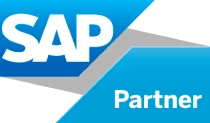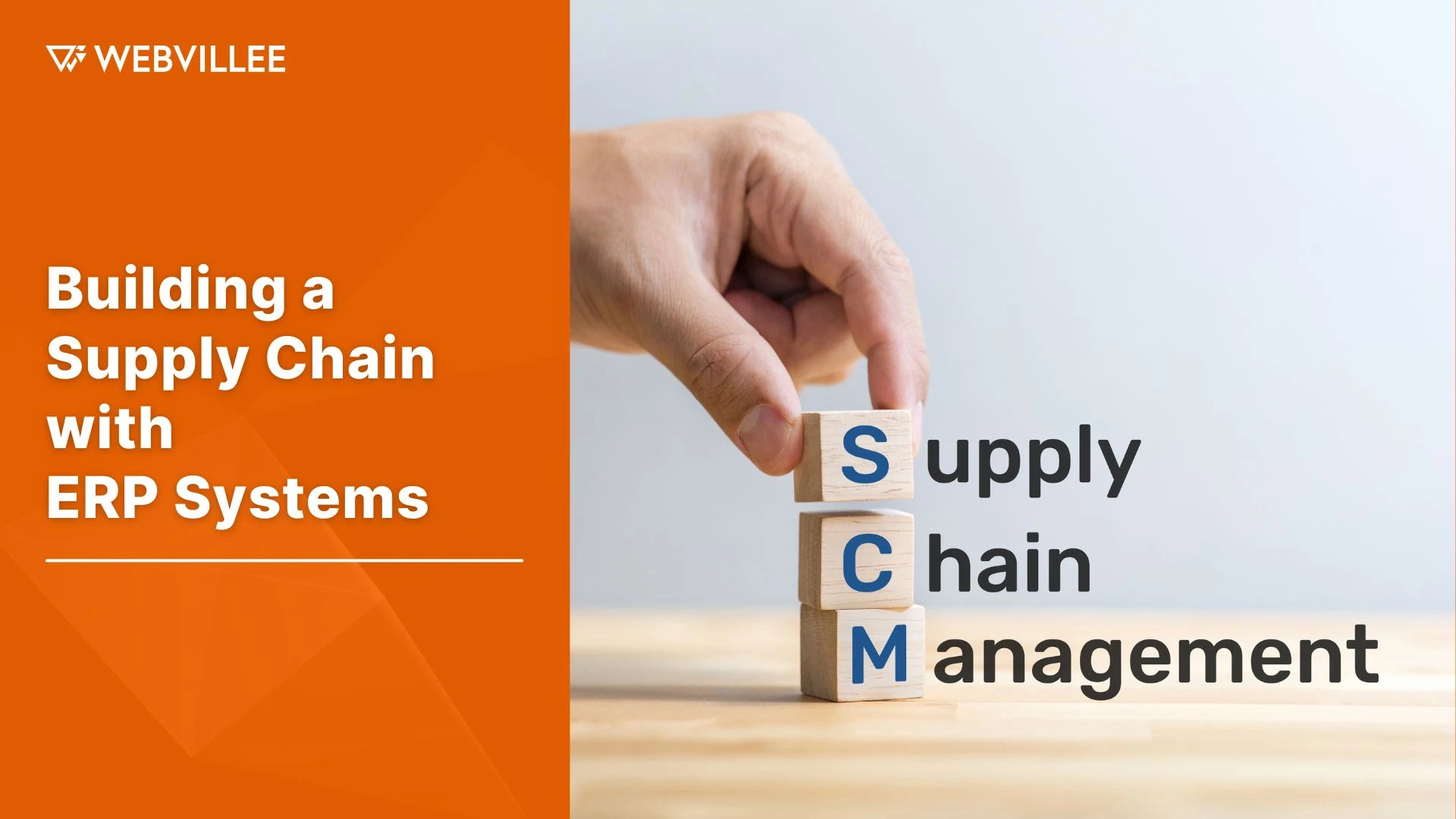From fluctuating demand and unstable markets to logistical nightmares and geopolitical risk, businesses need to be able to quickly adapt to be efficient and satisfy customer expectations. A highly efficient method to overcome these issues is through the use of Enterprise Resource Planning (ERP) systems. The integrated solutions don’t only improve business processes but also improve the resiliency in the supply chain through immediate data, automated processes along with advanced analytics.
This blog will discuss how the latest ERP software can be utilized to construct a durable supply chain. We will explore specifics of ERP systems, the role they play in modern supply chains, and how businesses can utilize ERP systems to minimize risk and ensure continuity in the event of disruptions.
The Modern Supply Chain: Challenges and Complexities
Supply chains are not linear but are now dynamic multi-faceted and extend across boundaries. It involves multiple parties and demands seamless coordination
Some of the biggest issues facing supply chains in the modern age are:
- Demand Forecasting: Improper demand forecasts can result in excess stocks or inventory, which can result in losses in the financials of the business
- Supplier Disruptions: Supply chain disruptions and financial instability as well as geopolitical developments can cause problems throughout the supply chain.
- Logistics Complexity Moving products across supply chain systems requires numerous transportation routes as well as regulatory compliance as well as customs and regulatory procedures.
- Market Volatility: Changes in prices in the raw materials market and exchange rates can dramatically impact the cost structure and profits.
To meet these challenges Companies need to embrace digital transformation. This is the point where ERP systems are a key component. It gives you the tools to deal with complexity and enhance the efficiency of the supply chain.
What is an ERP System?
An ERP program is a collection of software applications that integrate and are employed by businesses to oversee core business functions like accounting and procurement, human resources, inventory as well as supply chain management.
The modern ERP systems are built using modern technology like cloud computing artificial intelligence (AI) machine learning (ML) as well as the Internet of Things (IoT) to offer real-time information as well as predictive analytics, as well automation.
When they are applied to supply chains, ERP systems offer a comprehensive view of the entire process from inventory management and procurement up to fulfillment of orders and shipment. By integrating information from all aspects that comprise the supply chain, companies can make informed decisions to reduce inefficiencies and boost flexibility.
Key Features of Advanced ERP Systems for Supply Chain Resilience
In order to build a robust supply chain, businesses require sophisticated ERP systems that have robust capabilities. Here are a few essential features that make ERP systems essential in managing supply chains:
1) Real-Time Data and Analytics
Modern ERP systems offer real-time insight across every aspect of the supply chain. This includes monitoring levels of inventory, performance of suppliers as well as the status of transportation and forecasts of inventory. Through continuous monitoring of these variables, businesses can be able to quickly spot the possibility of disruptions and implement proactive steps.
For instance, if inventory levels are less than anticipated due to a delay in the supply chain the ERP system will trigger replenishment orders, or even alert procurement teams to take appropriate action. Advanced analytics enables firms to identify patterns of trends and anomalies which can aid in making better decisions.
2) Demand forecasting and Predictive analytics,
One of the most difficult issues in the supply chains is accurately forecasting demand. A modern ERP system makes use of predictive analytics based on machine learning algorithms that improve forecasting of demand. By studying past sales information, market trends as well as external factors (e.g. economic and weather conditions, etc.) the system can predict demand with greater accuracy.
This allows companies to alter their supply chain strategies before which reduces the chance of understocking or overstocking. Additionally, predictive analytics can aid companies in planning for possible disruptions in supply chains by modeling various scenarios and evaluating the effect of any fluctuations in demand.
3) Inventory and Warehouse Management
Effective inventory management is essential to the supply chain’s resilience. Modern ERP systems allow for the monitoring of inventory in real-time, giving exact information about stock levels along with order status as well as any fluctuation in demands. By optimizing the level of inventory, companies can reduce the chance of stockouts or excessive inventory which can affect the supply chain.
Additionally, ERP systems integrate with warehouse management systems (WMS) to help optimize storage space, control the packing and picking processes, and ensure the timely delivery of orders. The system may also use IoT equipment (e.g. RFID tags) to monitor the movement of goods inside warehouses and ensure that inventory is upto date.
4) Supplier Relationship Management (SRM)
Establishing strong relations with suppliers is crucial to ensure a robust supply chain. ERP systems incorporate Supplier Relations Management (SRM) modules that permit companies to monitor the performance of their suppliers managing contracts, as well as assess the risks that are associated with suppliers.
By integrating data from suppliers together with other aspects that comprise the supply chain, ERP solutions allow firms to determine the most effective suppliers. It also negotiates better terms and reduces the risk of disruptions in the supply chain. For instance, if one supplier is always delayed in the delivery of products and services, the ERP system can detect the issue and suggest alternate suppliers to minimize the risks.
5) Automatic order processing and fulfillment
The effectiveness of fulfillment and processing orders is crucial to the resilience of the supply chain. Modern ERP systems automatize every step of the process from receipt of orders and invoicing to delivery and tracking. By automatizing these processes companies can cut down on errors made by humans, increase the accuracy of orders, and speed up the time of fulfillment.
Furthermore, ERP systems enable seamless communication between inventory, sales logistical teams, and sales. This means that orders are processed quickly and inventory updates are made in real time and customers are informed about any delays or modifications in delivery times.
6) Risk Management and Scenario Planning
ERP systems have features for managing risk that assist businesses in identifying, and evaluating the potential risks within their supply chains. Advanced ERP solutions are integrated with data sources from outside (e.g. forecasts for weather news feeds, news feeds, and Economic reports) to give immediate alerts about hazards like natural disasters strike, regulatory changes.
Additionally, ERP systems support scenario planning, which allows businesses to simulate various supply chain scenarios and evaluate the impact they have on their operations. This allows companies to prepare for disruptions through the creation of contingency plans and identifying alternative routes or sources in advance.
The Role of Cloud Technology in ERP for Supply Chain Resilience
The adoption of cloud-based ERP systems has revolutionized supply chain management by providing greater flexibility, scalability, and real-time access to data. Cloud-based ERP solutions enable businesses to access their supply chain data from anywhere, anytime, ensuring that teams can make decisions even in remote locations or during non-business hours.
Moreover, cloud-based ERP systems offer cost-effective scalability, allowing businesses to adjust their software capabilities as their supply chains grow or change. Cloud ERP also supports collaboration across multiple locations and time zones, fostering a more agile supply chain.
Conclusion: Future-Proofing Supply Chains with ERP Systems
In an increasingly volatile and complex business environment, building a resilient supply chain is not just a competitive advantage—it’s a necessity. Advanced ERP systems are at the heart of this transformation, providing the tools needed to integrate data, streamline operations, and mitigate risks.
By embracing cloud-based ERP solutions, leveraging predictive analytics, automating key processes, and integrating cutting-edge technologies like IoT and blockchain, businesses can future-proof their supply chains. A resilient supply chain is not only more adaptable to disruptions but also more efficient, cost-effective, and responsive to changing market conditions. As companies continue to face new challenges in the global marketplace, ERP systems will play an essential role in ensuring that their supply chains remain strong, flexible, and ready for the future.

